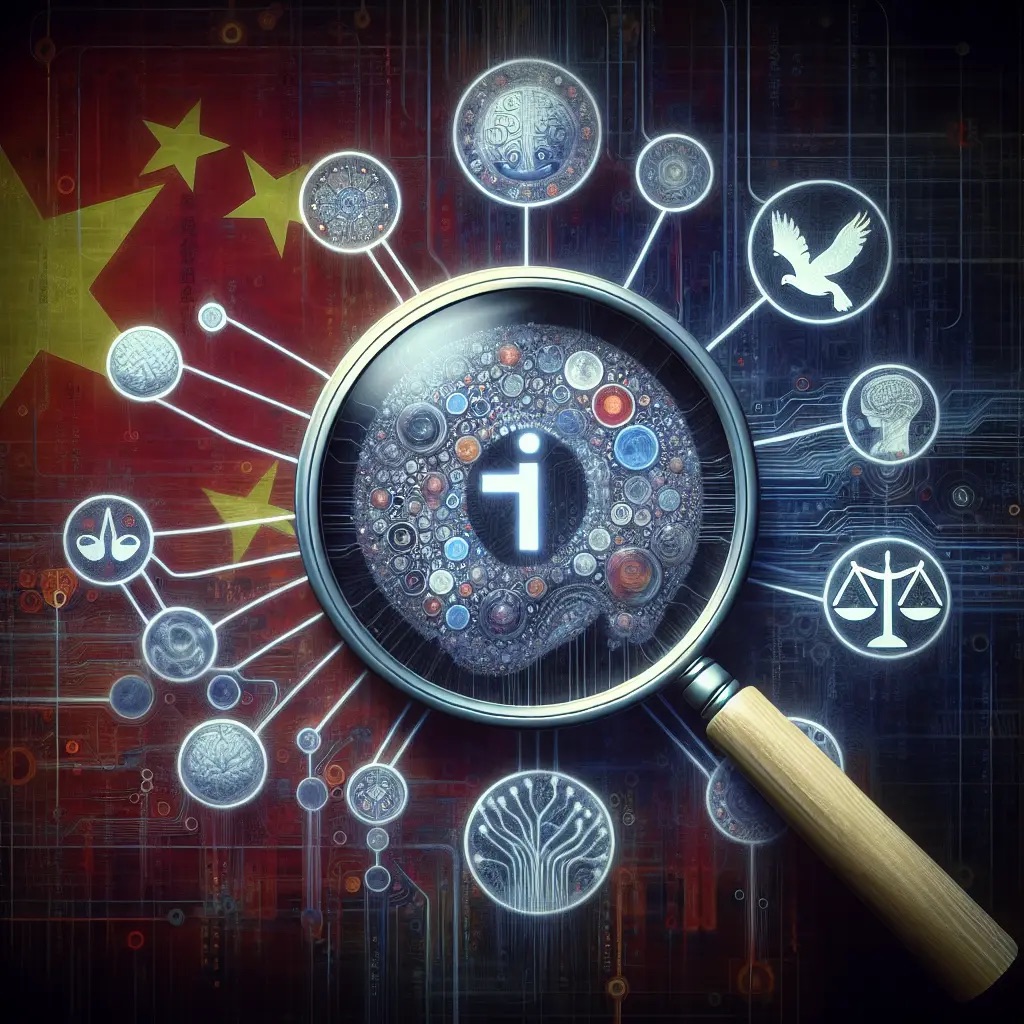The global artificial intelligence landscape is witnessing a pivotal moment. Nvidia, the undisputed leader in AI hardware, has reportedly secured crucial approval for its H20 AI chip sales in China. This development signals a significant strategic maneuver, allowing the company to re-engage with one of the world’s most vital AI markets despite ongoing U.S. export restrictions.
This long-awaited green light for the Nvidia H20 AI chip sales in China could reshape the competitive dynamics, fuel domestic AI development, and set a precedent for future tech trade relations between Washington and Beijing. For Nvidia, it represents a crucial opportunity to maintain its market dominance and tap into the immense demand for high-performance computing necessary for advanced AI models.
Navigating Export Controls: The Genesis of Nvidia’s China-Specific Chips
Understanding U.S. Export Regulations on AI Hardware
In recent years, the U.S. government has implemented stringent export controls aimed at limiting China’s access to advanced artificial intelligence chips. These restrictions are primarily driven by national security concerns, preventing Beijing from utilizing cutting-edge AI for military modernization or human rights abuses. High-performance GPUs like Nvidia’s A100 and H100, essential for training large language models (LLMs) and other complex AI applications, were explicitly targeted.
The regulations created a significant hurdle for Nvidia, which had a substantial presence in the Chinese market. Companies like Alibaba, Tencent, Baidu, and ByteDance are massive consumers of AI hardware, and suddenly, their access to Nvidia’s top-tier GPUs was severely curtailed. This regulatory environment prompted Nvidia to innovate and develop products specifically tailored to comply with these new rules.
Nvidia’s Strategic Response: The H20 and Other China-Specific GPUs
To navigate the complex web of U.S. export controls and serve its Chinese customers, Nvidia engineered a series of modified AI chips. The H20 is the most powerful among these China-specific variants, alongside the L20 and L2. These chips are designed to fall below the performance thresholds stipulated by U.S. Department of Commerce rules, yet still offer substantial capabilities for various AI workloads.
- H20: Boasts impressive memory bandwidth (4.0 TB/s) and a large memory capacity (96GB), crucial for large-scale AI model training and inference. Its compute power is intentionally throttled to comply with regulations, making it less potent than the H100 but still highly effective.
- L20: Offers a balance of capabilities, suitable for inference and certain enterprise AI applications.
- L2: Designed for more modest AI tasks, focusing on energy efficiency and cost-effectiveness.
The development of these tailored chips underscores Nvidia’s commitment to the Chinese market and its agility in adapting to geopolitical challenges. The goal was to provide solutions that meet the significant demand for AI compute power within China, without crossing U.S. regulatory red lines.
The Significance of Nvidia H20 AI Chip Sales Approval in China
Re-establishing Nvidia’s Foothold in a Crucial Market
China represents a colossal market for artificial intelligence development and deployment. Its tech giants, research institutions, and burgeoning startup scene require vast amounts of compute power to advance their AI ambitions. Without access to competitive AI hardware, these entities faced potential bottlenecks, and Nvidia risked losing significant market share to domestic competitors or alternative international suppliers.
The approval for Nvidia H20 AI chip sales in China is therefore a monumental win for the company. It allows Nvidia to re-engage with key clients, protect its revenue streams, and ensure its technology remains foundational to the development of AI ecosystems across the globe. This strategic move helps Nvidia solidify its position as the leading provider of high-performance GPUs for AI workloads worldwide.
Fueling China’s AI Ambitions and Enterprise Solutions
While the H20 may not match the raw processing power of its unrestricted counterparts, it is still a highly capable AI chip. Its approval means Chinese cloud service providers, large tech companies, and numerous startups will gain access to a powerful tool for accelerating their AI initiatives. The H20’s strengths, particularly its high memory bandwidth, make it suitable for:
- Training and fine-tuning moderately sized AI models.
- Large-scale AI inference, which is crucial for deploying AI applications in real-world scenarios.
- Developing and deploying enterprise AI solutions across various industries, including healthcare, finance, manufacturing, and logistics.
- Supporting the growth of China’s burgeoning data center infrastructure for AI.
This influx of sophisticated AI hardware will undoubtedly invigorate China’s domestic AI ecosystem, fostering innovation and accelerating the deployment of AI-powered services across the economy. It ensures that critical AI development can continue at pace, even with export restrictions on the very top-tier chips.
Technical Specifications and Performance of the H20
What the H20 AI Chip Offers
The Nvidia H20 is part of Nvidia’s Hopper architecture, specifically designed to comply with U.S. export control rules while still delivering robust AI capabilities. While its peak floating-point operations per second (FLOPS) are lower than the H100, its design emphasizes other critical aspects for AI workloads:
- Memory Capacity: A substantial 96GB of HBM3 VRAM, which is critical for handling large datasets and complex AI models, especially for inference and fine-tuning.
- Memory Bandwidth: An impressive 4.0 TB/s, allowing for rapid data transfer, reducing bottlenecks and improving the efficiency of AI computations. This is particularly beneficial for memory-intensive tasks like those found in large language models.
- Interconnect: Utilizes NVLink, Nvidia’s high-speed interconnect technology, enabling efficient scaling across multiple GPUs for larger AI training tasks.
This carefully calibrated design ensures that the H20 remains a powerful and practical AI chip for the Chinese market. It allows for significant progress in areas such as natural language processing, computer vision, and recommendation systems, providing a solid foundation for enterprise AI solutions without exceeding the U.S. government’s specified performance caps.
Market Implications and Competitive Landscape
Impact on Nvidia’s Revenue and Global Strategy
The approval of Nvidia H20 AI chip sales in China is poised to significantly impact Nvidia’s financial outlook. China has historically been a major revenue driver for Nvidia, and the ability to sell compliant, high-performance AI chips will help offset any losses incurred due to the earlier restrictions. This demonstrates Nvidia’s resilience and its commitment to navigating complex geopolitical landscapes to serve its global customer base.
Furthermore, it reinforces Nvidia’s global strategy: to be the indispensable partner for AI development, regardless of regional challenges. By providing a viable solution for the Chinese market, Nvidia maintains its strategic influence and ensures its architecture and software ecosystem (CUDA) remain dominant in the region.
Competition within China and Globally
While Nvidia has secured a crucial foothold, the competitive landscape in China is evolving rapidly. Domestic chipmakers, such as Huawei (with its Ascend series), Biren Technology, and Moore Threads, are making strides in developing their own AI hardware. These companies have been beneficiaries of the U.S. sanctions, seeing increased demand for their homegrown alternatives.
The H20 approval means these Chinese firms will now face renewed competition from a powerful, established player. However, it also means that the overall capacity for AI compute within China will increase, benefiting the entire ecosystem. The long-term success of Nvidia H20 AI chip sales in China will depend on balancing performance, cost, and continued compliance, while also fending off increasingly capable domestic alternatives.
The Broader Geopolitical and Economic Context
Balancing Innovation and National Security
The H20 approval highlights the ongoing tension between a desire for technological innovation and national security concerns. The U.S. government aims to curb China’s military capabilities, while American tech companies seek access to lucrative markets. The H20 represents a careful compromise, allowing some level of advanced AI hardware sales without crossing perceived red lines concerning military applications.
This dynamic ensures that the tech trade relationship between the U.S. and China remains a complex dance of policy, product development, and market demand. It underscores the challenges faced by multinational corporations in a world grappling with heightened geopolitical rivalries.
Implications for Future U.S.-China Tech Relations
The green light for Nvidia H20 AI chip sales in China could set a precedent for how the U.S. navigates future tech export controls. It suggests a potential pathway for American companies to continue engaging with the Chinese market, provided their products adhere to specific performance limitations. However, it also means that the development of specialized, compliant products will likely become a recurring theme for tech giants operating across geopolitical divides.
This approval indicates a nuanced approach, acknowledging China’s vast economic importance while attempting to manage strategic technology transfers. The tech industry will be closely watching to see if this model can be replicated for other advanced technologies and markets.
Conclusion
The approval for Nvidia H20 AI chip sales in China represents a complex yet pivotal moment in global technology and trade. For Nvidia, it signifies a strategic victory, allowing it to maintain a critical presence in one of the world’s most dynamic AI markets and protect significant revenue streams. For China, it means accelerated access to powerful Nvidia AI chips, bolstering its domestic AI development efforts and fostering innovation across various sectors.
As the AI revolution continues to unfold, the availability of advanced AI hardware like the H20 will be crucial for nations and corporations alike. This development underscores the intricate balance between technological advancement, economic interests, and geopolitical considerations that define the modern global landscape.

